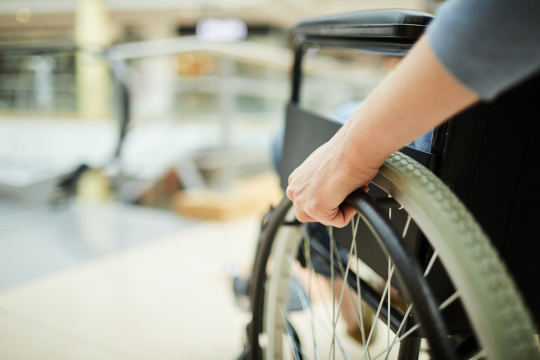As a travel advisor, one of your primary responsibilities is being an expert in your clients. Sometimes they may have a life that looks very different from yours, and it's your job to understand how their needs may vary from yours or your other clients.
I'm fortunate that I've never had to rely on specific accommodations when I travel. But you know that whole "walk a mile in their shoes" thing? Over the past few years I've traveled with people who have physical, mental, or dietary restrictions, and it's truly eye-opening when you realize how ineffective a lot of accommodations actually are. Too often, places are checking off legal obligations instead of considering the big picture.
Earlier this year I went to DC with my family to explore the Natural History Museum. My sister isn't fully wheelchair-bound, but she can't walk or stand for long periods and uses a wheelchair to get around. While they did have elevators so she could move from floor to floor, they didn't have many of them, and several were closed off. We constantly found ourselves waiting for one elevator with several other people who could technically take the stairs but didn't want to.
Some places have it down to a science, though. My mom had hip replacement surgery a few years ago, and right before it was scheduled we went to Walt Disney World to celebrate her birthday. Because she was in pain, we rented her a wheelchair so my dad could lovingly push her around the park. As someone who worked at Disney, I'm aware of their policies around making sure people with disabilities can enjoy the parks as much as anyone else, but it was interesting to see it from the other side.
For example, when we'd get in line for a ride, cast members would politely ask my mom if she was comfortable standing for a short period and made sure she didn't have to get up until she needed to.
I also know several people with severe food allergies, and I've seen firsthand how it's not always enough to notify your waiter. You have to peep at the kitchen to make sure they're actually changing their gloves, or that there's not a contaminant like flour filling the air in the same space they're prepping your gluten-free pizza.

When working with clients who need accommodations, it's not enough to make sure the hotel has the right bathroom available or enough designated handicap spots in the parking lot. Just because these things are in place doesn't mean they're convenient or well-maintained. You need to look at it from a more holistic viewpoint and ask different types of questions.
- Is this a good time of year to visit this destination? Will the weather be too hot, cold, or rainy and cause issues for someone who is sensitive to temperature or has mobility challenges? Will the time change affect their medication schedule?
- What is the distance between gates, baggage claim, and ground transport at the airport, and are there reliable assistance services to help get around? Do these services need to be pre-booked?
- Is adaptive equipment available on excursions? Are the "accessible" excursions going to separate them from others and create an isolating experience? Will there be experiences that may cause sensory overload, and can you get skip-the-line tickets or early entry access for clients who are uncomfortable in loud or crowded spaces?
- Can you get them a consistent contact in the destination or alert properties about their needs in advance so they don't have the emotional labor of explaining it over and over? Is the property itself accessible as a whole experience, or just the room? Will they still need help at the breakfast buffet because they can't reach from a wheelchair? Is the staff properly trained on accessibility, or will the client have to deal with either too much or not enough assistance?

As a travel advisor, you can't possibly fully identify with every single client you work with. But by taking the time to understand not only their needs but how different partners and places are set up to accommodate them, you can craft an amazing and inclusive trip for anyone.


.png)


